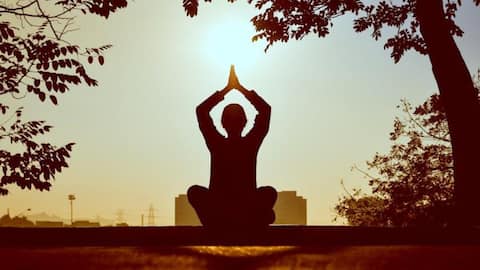Enhancing sleep quality with effective meditation practices
What's the story
Quality sleep is essential for maintaining good health, yet many people struggle to get enough rest. The hustle and bustle of daily life, coupled with stress and anxiety, can make it difficult to unwind and sleep. Let's explore how incorporating a few meditation techniques into your nightly routine can create a more peaceful and conducive environment for a restful slumber.
Imagination
Guided imagery
Guided imagery involves visualizing calming, peaceful scenes to distract the mind from stress and anxiety. To practice, close your eyes, take a few deep breaths, and picture a serene place like a beach, forest, or meadow. Engage all your senses—imagine the sounds, smells, and sensations of this environment. This visualization can foster relaxation, aiding in a smoother transition to sleep.
Sensation
Body scan meditation
Body scan meditation focuses on different body parts to release tension and promote relaxation. Lie down in a comfortable position with your eyes closed. Start at your toes, noticing any sensations, and gradually move up your body, one area at a time, to the top of your head. Imagine tension melting away with each breath, relaxing your body and preparing for sleep.
Relaxation
Deep breathing
Breathing exercises can significantly enhance relaxation by focusing on the rhythm of your breath. Deep, slow breaths activate the parasympathetic nervous system, initiating a relaxation response that helps prepare your body for a restful night's sleep. This practice can calm your mind and reduce stress, making it easier to unwind and achieve a peaceful state before bedtime.
Compassion
Loving-kindness meditation
This technique focusses on cultivating feelings of love and compassion for oneself and others. Begin by sitting quietly, closing your eyes, and repeating phrases like "May I be happy, may I be healthy, may I be safe, may I live with ease." Extend these wishes to loved ones and eventually to all beings. This practice can promote peace, reduce stress, and enhance sleep quality.
